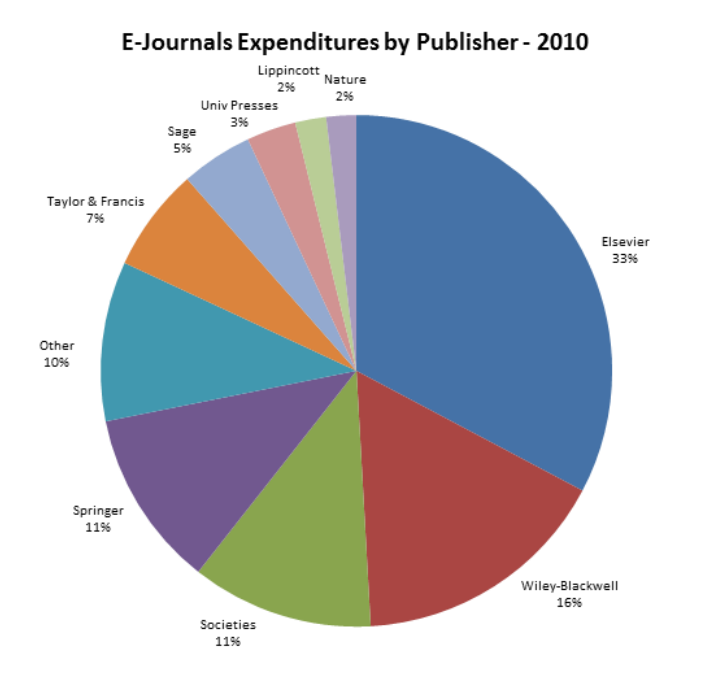A boycott of Elsevier journals has been growing to show opposition to their support of the Research Works Act and their 36% profits (see Research Bought, Then Paid For – an Op-Ed in the New York Times, Elsevier boycott gains momentum, Elsevier responds to the boycott, and “Of goats and headaches”–The Economist on journal publishing for previous posts on these issues ).
There have also been prominent articles about the lack of public accessibility of academic research, such as “Locked in the Ivory Tower: Why JSTOR Imprisons Academic Research” which appeared in The Atlantic on Jan 20, 2012. This particular article points to JSTOR as an example of the “broken economics of academic publishing”. Nancy Sims from University of Minnesota wrote “Academic publishing is full of problems; lets get them right” which is a good response to the Atlantic article, correcting some of the specifics.
Since that time, we have seen faculty taking note of the cost of some e-journal packages and collections of titles, most notably the $2.9 million figure from Purdue when that institution came close to cancelling their Elsevier package in December. (“Purdue re-signs contract for online scholastic access” )
In order to keep Iowa faculty informed about the cost of journals from a variety of sources, we offer these figures for University of Iowa costs from FY 2011:
| Publisher | Cost | # of Titles |
|---|---|---|
| Elsevier | $ 1,641,530 |
2095 |
| Wiley/Blackwell | $ 868,031 |
1304 |
| Springer | $ 607,540 |
400 |
| Sage | $ 243,647 |
608 |
| JSTOR | $ 97,602 |
2319 |
| Cambridge UP | $ 43,940 |
145 |
| Project Muse | $ 33,210 |
500 |
| Oxford UP | $ 21,313 |
250 |
Please note that the JSTOR figure is for back content (the so-called moving wall), not current issues.
The following chart offers another way to view the relative size shares of the pie different publishers receive from our acquisitions budget (the denominator for these percentages is total spending on e-journals). The data is slightly older than that used above.


